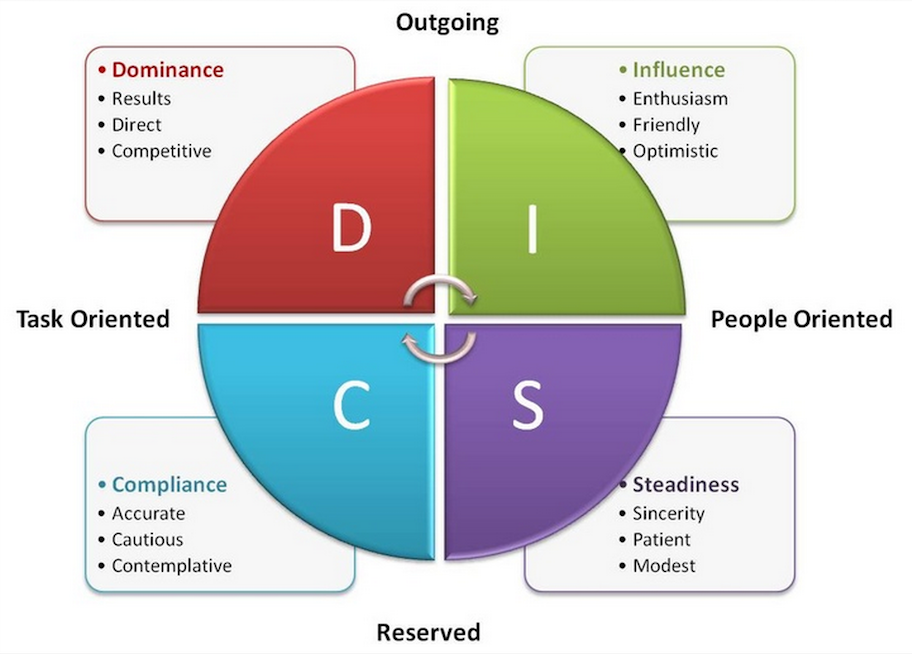New Year, New Team?
GeneralGetting to know your colleagues: how well do you really work together?
We have all watched The Apprentice; the constant bickering, arguments, backstabbing and tears between the contestants may seem all too familiar to some of us. We can all too easily sit back on our sofas and judge characters by their the ways in which they behave; “There's no way in hell those two are going to get along” or “She'll definitely be eliminated this week - she's too bossy for the team”.
It appears that we can easily detect when individuals are more dominant, more compliant, or more personable than others. But can we? and if we struggle to build effective relationships with the people we work with, what can we do?
When it comes to our own working environments how can we assess who is dominant or more personable and what groups of people would be most productive? If you are managing a new team or starting a new business these are fundamentals which can make or break your career.
Managing ourselves and our teams in the workplace is something we so often simply leave to chance. Through one of our clients Penny Davenport we recently discovered a much more structured approach...
Extended DISC may sound complex but in fact it is a behavioural model that identifies typical behavioural styles to prepare us to more effectively manage and motivate people .
In the office we took the DISC assessment, and we were very impressed with the results. It is a great tool for organising teams in the workplace and to distinguish your own strengths and weaknesses at work. (The analysis does not necessarily define your entire personality but the most defined traits!)
"Deborah and I discovered that we were much more similar than we had imagined and as a result we have tailored our working styles to be far more productive," revealed Lisa Ronchetti, director at adhoc pr. "We can also gently nag each other when we lapse back into our old habits!"
If you want to learn more about your individual working style, or how to manage a more effective team, head to www.pennydavenport.co.uk for effective business mentoring and career coaching!
MORE ABOUT DISC THEORY
The DISC theory works from four behavioural styles:
1. Dominance
2. Influence/Interpersonal
3. Steadiness
4. Compliance/Correctness
Each of these portray task-oriented, active, personal-orientated and reserved behaviours.
Which one do you think you might be?
http://careerminds.com/blog/the-disc-assessment-the-job-seeker/
The great thing about this assessment is that it is very difficult to cheat and it is very simple. The series of questions ask you to select one statement that is most like you and one that is least like you.
Here are some points about how to behave when you are faced with each different character style.
D-Style:
When dealing with a D-style person you need to be direct and concise, focus on issues and not emotions, be positive and remember not to take them personally.
Celebrity D-Styles: Simon Cowell, Michael Jackson and Madonna
I-Style:
Under pressure they are typically disorganised as they focus on people and not details. When dealing with an I-Style you need to keep it fun and positive, speak up and be enthusiastic.
Celebrity I-Styles: Bill Clinton, Prince Harry and Tony Blair
S-Style:
You need to provide lots of time for analysis and decision-making, when it comes to S-Style's. Be sure to warn of changes and risks as their biggest fear is loss of stability.
Celebrity I-Styles: Princess Diana, Kate Middleton and Michelle Obama
C-Style:
They can be perceived as cold and clinical as under pressure they are overly critical - but in fact their biggest fear is being criticised. When dealing with C-styles make sure to prepare, slow-down, use references and fact and take caution not to threaten or criticise.
Celebrity C-Styles: Al Gore, Johnny Wilkinson and Gordon Brown
Penny Davenport can be contacted on 07990 052 4202 or email pennydavenport@yahoo.co.uk


